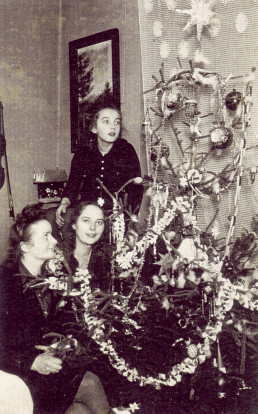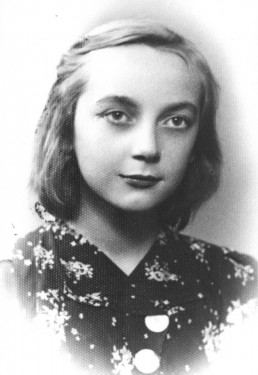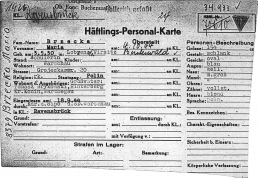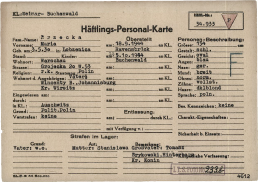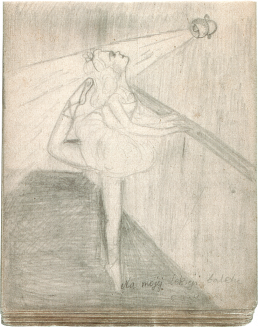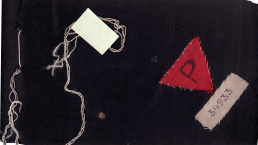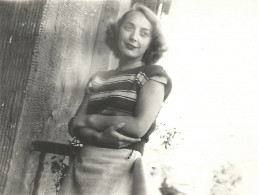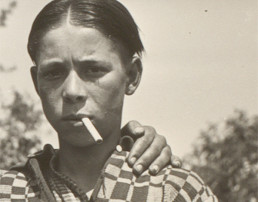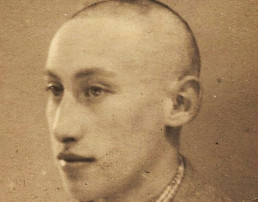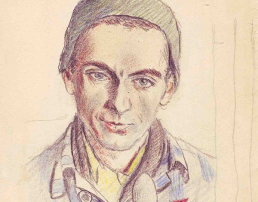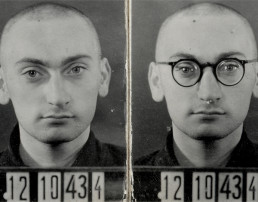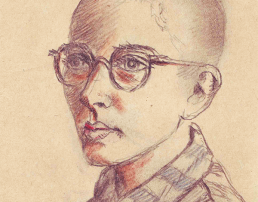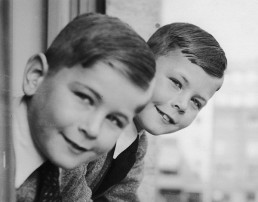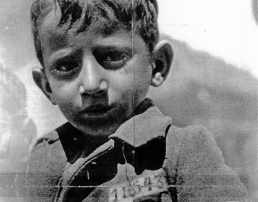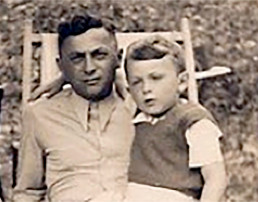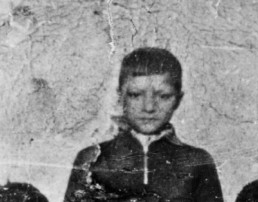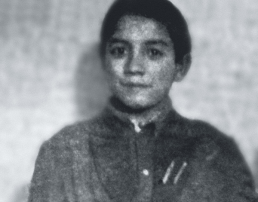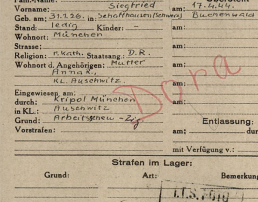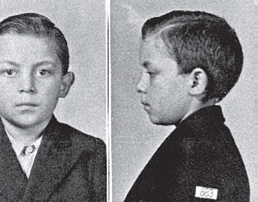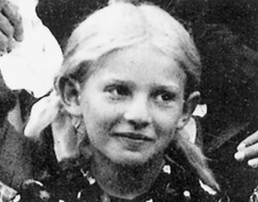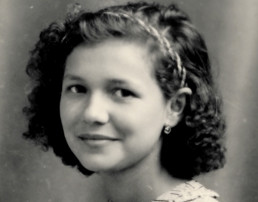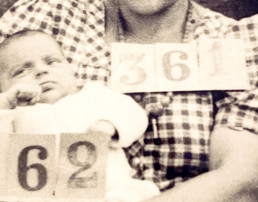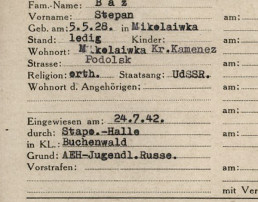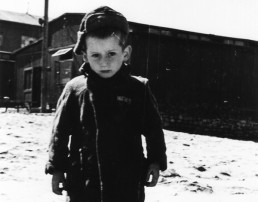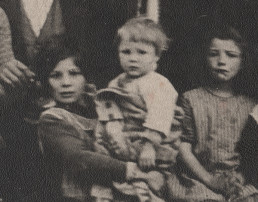Maria Janina Kosk (née Brzęcka)
Drawing and survival in the Meuselwitz subcamp
Maria Brzęcka was born on 3 May 1930 in Łobżenica (Poland). From 1940 to 1944, she lived with her mother and her sisters Halina and Krystyna in Warsaw, where she attended elementary school.
In 1944, after the suppression of the Warsaw Uprising, the mother and the three daughters were deported to the Auschwitz Concentration Camp. From there, they were sent to Ravensbrück and then to the Buchenwald subcamp Meuselwitz. There, they were assigned to forced labor in a munitions factory. At the end of November 1944, the four were separated when their mother and sister Krystyna were sent back to Ravensbrück.
In Meuselwitz, Maria secretly kept a diary and made numerous drawings. On 5 May 1945, Maria and Halina were liberated by Soviet troops while on a death march. They returned to Poland and were reunited with their mother and sister Krystyna. Maria studied architecture and later worked in Poland, France and Algeria. She died in 2013 in Warsaw.
Buchenwald Concentration Camp prisoner registration file, October 1944.
The Meuselwitz Concentration Camp was a subcamp of Buchenwald; the prisoners were registered in the main camp. In the prisoner registration file, the 14-year-old was assigned a red prisoner triangle and categorized as a political prisoner. The file also indicates that she had previously been in the Auschwitz and Ravensbrück Concentration Camps.
(Arolsen Archives)
"My ballet class": drawing from the Meuselwitz Concentration Camp, 8 February 1945.
Maria Brzęcka drew in order to escape the reality of the camp. Here, she depicted a memory of her ballet lessons in Warsaw.
(Buchenwald Memorial)
Maria Brzęcka’s poetry album from her time in the Meuselwitz Concentration Camp.
On the cover of the album are sewn the red triangle with the letter “P” for Polish and the number she had to wear on her prison uniform.
(Buchenwald Memorial)
"One day Halina gave me a pleasant surprise. Since I had finally received new wooden shoes from the warehouse, my sister asked Pani Jadwiga [a fellow prisoner] for some scraps of cloth. From them and from paper she had taken from the factory, Halina made me a poetry album like the one I had owned in Warsaw. My friends would sign the book, usually with a poem. The cover of my poetry album was made of cardboard, covered with dark blue cloth, on which the triangle with the red letter P was sewn. Underneath, on a piece of white cloth, was my number 34933. The kind women imprisoned with me signed my album."
Diary entry by Maria Brzęcka about the creation of the poetry album in the Meuselwitz Concentration Camp, January 1945.
(Als Mädchen im KZ Meuselwitz. Erinnerungen von Maria Brzęcka-Kosk, Dresden 2016).
After liberation. Maria Brzęcka in her apartment in Warsaw, 1951.
Maria Brzęcka returned to Warsaw in 1945. She went to university and became an internationally successful interior designer. She married Janusz Kosk, an electrical engineer, in 1958. She kept silent for a long time about her experiences as a teenager in various concentration camps. It was not until the 1990s that she began to write down her memories. In 2016, her autobiographical notes were published in German in the book Als Mädchen im KZ Meuselwitz.
(Leipzig Nazi Forced Labour Memorial)
